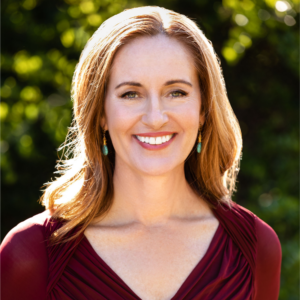Why you should not discount your art
(Transcription)
Artist Jina Kim
Raleigh, North Carolina
Jina Kim: (00:00)
A lot of people– they still have a lot of fear about selling. “I don’t know how to sell or I don’t know who to sell. I’ve tried all the marketing.” But so there is some sort of a relief that you don’t need to continue to do that.
Ann Rea (00:19)
No.
Jina Kim (00:20)
And one thing, I can’t remember her name, she said she was in gallery. She did all the shows. It’s not working and all that, and she doesn’t want to do it, but she’s glad that we exist.
Ann Rea (00:34)
Oh, good. Yes. Don’t do it you guys, unless you want to. If you want, look, if you’re okay, if your art is just a hobby, there’s nothing wrong with that. There’s nothing wrong with having a hobby as a fine artist. But let’s get really clear about what it means to have a hobby versus being a professional fine artist. All right. It’s really simple. It’s just math. So hobbyists don’t make a profit from the sale of their art. It doesn’t matter if you’re selling your art or not. You could be selling a bunch of art. There are artists who are– they’re selling art in museums, but they’re not making a profit. So it’s just a hobby.
It doesn’t matter. Now, that’s just a legal definition and that it’s an economic definition. More importantly, it’s the definition that your taxing authority is going to foist upon you. So if you are okay with that, then you don’t need Making Art Making Money. You don’t need to waste your time here, okay? Just go do those 43 things. Enjoy! I hope your confidence is not crushed in the process. It probably will be. And that doesn’t feel good.
Jina Kim (01:39)
Yes.
Ann Rea (01:40)
So, you can ask Jina. You can ask me. You can ask any number. It’s just like, why would you subject yourself to that? It’s not going to work. It’s a losing battle. Here’s the thing, you guys, the higher the price, the higher the touch, the higher the price, the simpler it is. What do you think about that, Jina? Is it complicated?
Jina Kim (02:02)
No, not really. It’s, it’s not. It’s more– you can also keep your dignity a lot more, lot more.
Ann Rea (03:26)
Right! Stop freaking discounting and donating your art and expecting to get paid for it. You’re not going to, as soon as you discount your art, you devalue it. You literally devalue it immediately. As soon as you discount your art, you damage your reputation as a fine artist. Because if your prices have no integrity, then it looks like you don’t have any integrity. And then third, you lose your confidence. And the most important thing is what Jina just said. They freaking come back and buy anyway. If they really want it, they don’t need the discount. But people are trained to ask, because asking is free. And don’t get all insulted or get your knickers in a knot if someone asks. It’s just a common thing for people to ask. That’s okay. Asking is fine. And I will say this, I worked with a representative in Los Angeles, and she used to lease my art to movie sets and TV production sets. And she also sold it. And what she asked me was, “Hey, if someone asked me for a discount on your art, will you give it to them? Can I offer them a discount?” And I said, “Absolutely not.” And she said funny enough, the artists who do not discount, she was represented over the years, always sell more art by like, she was represented over the years, always sell more art by, like not by a small margin, but by a significant margin. And here’s the reason why, everybody. It’s really hard for a collector to understand why art costs this price or that price, right? They don’t know. And if you set this price and then you go ahead and change it like, like that, you’ve now confused them. And here’s the motto you want to remember, write this down. “A confused mind says no.” If you present people with too many options or a confusing price that overwhelms them. And when people are overwhelmed, they don’t make decisions. It’s really simple.

Ann Rea, Fine Artist & Mentor
Ann Rea is a San Francisco-based fine artist. She created Making Art Making Money™, the leading and most reputable business program for fine artists since 2005. Rea’s art and business savvy have been featured on ABC, HGTV, Creative Live, The Good Life Project, in the book Career Renegade by Jonathan Fields, the San Francisco Chronicle, Art Business News, Fortune, and Inc. Magazines. Rea’s artistic talent was commended by her mentor, art icon Wayne Thiebaud.
